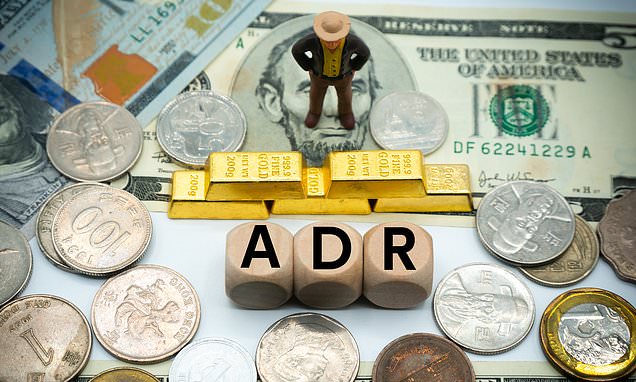
In this series, we bust the jargon and explain a popular investing term or theme. Here it’s ADRs.
Another abbreviation?
What can we say? The financial services industry lives to give us more and more sets of initials and acronyms.
ADR stands for American Depositary Receipt which is a certificate issued by a US bank, representing a number of shares in a non-US company.
This system allows American investors to put money into foreign companies, while avoiding the currency and other risks and the expense of cross-border transactions.
ADRs are not shares, but they confer the right to buy the same number of shares that each certificate represents – and to receive the dividends.
What’s the attraction for firms?
Companies want access to the larger capital pool and wider base of investors that the US offers, without the time and trouble involved in listing on the New York markets. Most major British companies have ADR arrangements for this reason. Such is the eagerness of many big Chinese companies – including Alibaba, Pinduoduo and electric vehicle maker Nio – to attract US cash that they too have ADRs.
The direction of these ADRs is closely watched, since it is seen as an indicator of the view in the US of Chinese economic and political conditions.
Who thought up ADRs?
JP Morgan, one of the most famous names on Wall Street, introduced the ADR in 1927 to enable Americans to take a stake in the British department store Selfridges, which went public six years earlier.
Selfridges is no longer a listed company. Having been owned by the Sears group and the Weston family, it was acquired in 2021, by the Central Group which is controlled by the Thai Chirathivat family, and Austrian real estate business Signa Group.
Why are we reading this now?
Last month, Britain’s number one tech company Arm, which makes chips for smartphones, floated on the Nasdaq exchange in New York rather than in London.
Related Articles
HOW THIS IS MONEY CAN HELP
This came as a blow to national pride – and also as a disappointment to those in Britain who may have wanted to back this home-grown success story. UK investors can buy Arm ADRs, but not through Isas (individual savings accounts) where many like to stash long-term holdings with growth potential.
Why are Isas barred?
It seems to be because the shares represented by the ADR are not listed on a regulated exchange and thus do not qualify as an Isa investment under HMRC rules.
This may be a minor irritation, but it is yet another aspect of the controversy that resulted from Arm’s decision to prefer New York to London – where tech businesses are more highly valued by investors.
Arm shares dipped following their debut, but they rose this week in response to a series of buy recommendations from Wall Street analysts – with JP Morgan being one of the most enthusiastic.
Does ADR stand for other things?
Yes. Confusingly, ADR stands for Average Daily Rate – a key metric for Airbnb which shows how much revenue a room in a property earns in a day. There is also Alternative Dispute Resolution, a means of resolving a dispute with a company, ex-partner or neighbour without going to court, and Adverse Drug Reaction.
Some links in this article may be affiliate links. If you click on them we may earn a small commission. That helps us fund This Is Money, and keep it free to use. We do not write articles to promote products. We do not allow any commercial relationship to affect our editorial independence.






